You – Me – Her => Us?
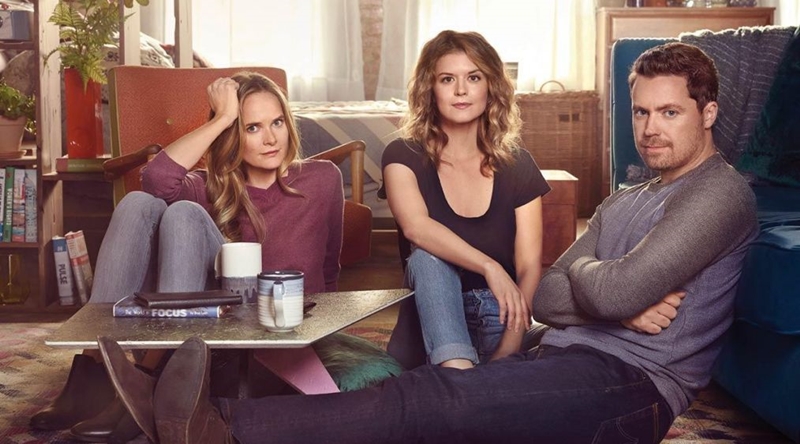
Romantic comedies, who doesn’t watch them every now and then? Cozy in your onesie, with Ben & Jerry’s on the couch, swept away by the handsome man and the beautiful woman in the all too familiar plots. At first they hate each other, but eventually, they fall in love (unfortunately, in real life, I often see this in reversed order). Or: they have to overcome all kinds of obstacles in the outside world in order to live happily ever after (at least that is what the characters seem to think at the time). Since the early beginnings of movie making, the so-called “romcom” has been a popular genre, which served as an identification for heterosexual, monogamous, cis-gender viewers (and made their expectations unrealistically high). And then, last year, on the Dutch Netflix suddenly an alternative romcom popped up, about polyamory: You – Me – Her
Polyamory is hot. And not only in 18+ films. More and more, I – as a higher educated Dutch woman – hear and read about people looking for a way to realize themselves outside the well-known relationship elevators. The Dutch philosopher Simone van Laarloos wrote “Het Monogame Drama” (The Monogamous Drama). And on Dutch television, it was made a topic of conversation as well. For example by Roos Reijbroek (in “Je zal het maar zijn!”), by Flemish comedian Philippe Geubels (in this comical sketch with a serious undertone) and by crime reporter Peter R. de Vries (who openly has an open marriage). The more attention I payed to it, the more non-monogamous people I encountered.
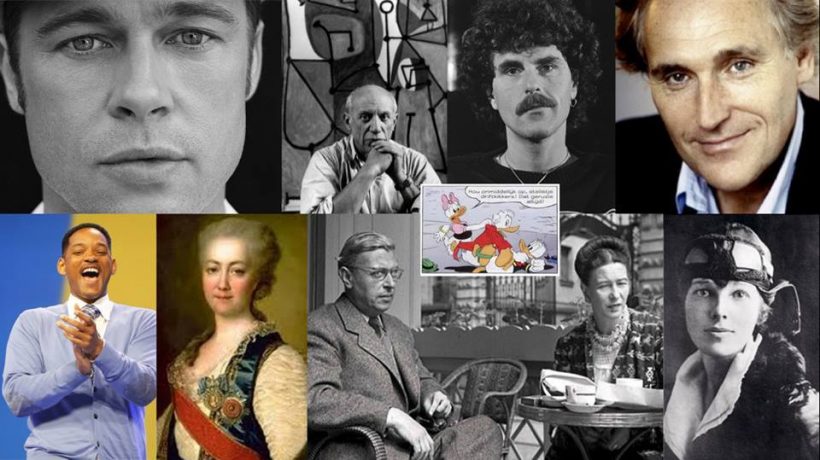
But what exactly is this thing called polyamory? My friend Wikipedia defines it as the following (accessed 6th February 2019):
Polyamory (from Greek πολύ poly, “many, several”, and Latin amor, “love”) is the practice of, or desire for, intimate relationships with more than one partner, with the consent of all partners involved. It has been described as “consensual, ethical, and responsible non-monogamy”. People who identify as polyamorous believe in an open relationship with a conscious management of jealousy; they reject the view that sexual and relational exclusivity are necessary for deep, committed, long-term loving relationships.
Wikipedia
Polyamory has come to be an umbrella term for various forms of non-monogamous, multi-partner relationships, or non-exclusive sexual or romantic relationships. Its usage reflects the choices and philosophies of the individuals involved, but with recurring themes or values, such as love, intimacy, honesty, integrity, equality, communication, and commitment.
I find this an interesting concept, because you do not have to squeeze yourself into a (pre)determined framework, as you can think and feel for yourself what your boundaries and wishes are. This way you rewrite the stories you were told to create your own story. But all stories are rooted in other stories. In order to explore how other people relate to polyamory, a few years ago, I joined forces with journalist Angela Poll, for her research about the framing of polyamory in the media. In the written media, that is, because mainstream TV on that subject was hardly available at the time.
Polyamory was briefly mentioned in House of Cards and of course you already had series like Big Love and Sister Wives, that featured relationships between one man and several women. But just as we still have fewer romcoms about queer than about straight people, for nice movies that include poly relationships, you really had to beat the bushes. And when you finally found something, it was often in a negative way, like in The Unbearable Lightness of Being (with the beautiful music of Leoš Janáček, but that aside). That gap has also been noticed by screenwriter John Scott Shepherd. His idea? “Simply, a realistic, cheerful romantic comedy about real people, with real jobs and real feelings, for whom three might work better than two,” (as quoted by Remke de Lange in the Dutch newspaper Trouw). And that became Netflix ‘much-discussed You -Me – Her
* The following discussion contains spoilers *
The series revolves around married thirties Jack and Emma Trakarsky (played by Greg Poehler and Rachel Blanchard), from suburbia Portland, Oregon. Because of their busy work and dog-ruffling dog, eroticism has slowly disappeared from their lives. In an effort to regain their sex lives and eventually conceive a child, they decide to hire Izzy (Priscilla Faia), psychology student, part-time escort; funny, beautiful, smart and sexy. Already after the first meeting it appears to click too much to keep it to a business agreement. At the end of season one they decide to be a “trouple” (of trio and couple) and then the Trakarsky’s have to find their way through the minefield of merciful neighbors with very narrow social norms and prejudices, while at the same time having trouble with their own feelings and uncertainties. Slowly but surely the trio is getting used to the unknown dynamics of a polyamorous relationship.
You – Me – Her is beautifully filmed, well acted and it breathes a wonderful 90s atmosphere. Cozy coffee houses, a nice disco and a recognizable high school create a happy trip down memory lane. Good supporting roles by Jennifer Spence and Melanie Papalia, among others. The love triangle is also clear, this is more than an adventure, this is a love affair according to the criteria of Robert Sternberg: passion, intimacy and dedication. Alltogether, has it achieved the goal – “a realistic, cheerful romantic comedy about real people” – then? I do not know.
The series is certainly funny and romantic at times too. But realistic? Personally, I find it rather strange that there is so little consultation between the three. The couple talk to each other a bit, Emma sometimes talks to a friend, Jack talks to his brother (which usually means that his brother teaches him a lesson). But a serious conversation with three of us without drugs and / or alcohol is scarce. When there is another fight – because the further in the series, the more dramas – Jack and Izzy dive into the bed to find out after the makeup sex that nothing has actually changed and therefore nothing has been made up for.
Also, as Izzy I would feel a third wheel, when the couple you are building a relationship with is so much for you without involving you in that process. Incidentally, the Trakarsky’s do that between the two of them as well, for example when Emma suggested to Izzy that she could move in with Jack and her – without consultation with Jack.
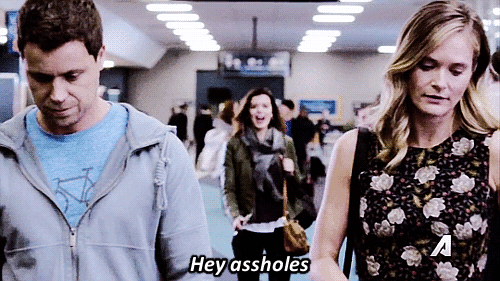
How is it that the series seems so unworldly to me? In my conversations with Angela I became aware of the different narratives within which polyamory was written. These can be styled into six negative frames, that Angela provided with appropriate names in Dutch, which I will re-name in English for this blog. Unfortunately, I recognise all those frames in You Me Her.
The first is The Very Hungry Caterpillar, which is on screen for example when Jack has a fight with the two ladies at home and therefore flees in romantic encounters with his ex-lover. We also see the Victim Frame, for example when Jack is scared (and frightened by stories from his brother and friends) that Emma is more lesbian than straight. Then we have the Intruder Frame, that suggests how Izzy will destroy the relationship of the couple. The (Ab)normal Frame pops up when Jack and Emma struggle and tell each other that it does not mean anything with Izzy, that it is just fun and just business as usuall.
The Frame of Judgement is very visible when all neighbors, friends and colleagues do not hide their not very positive opinions. A similar one is the Bad-for-the-Children frame, again expressed by the various people around the trouple. The possible positive frames conceived by Angela, such as the Enrichment Frame, appear only very sporadically and when they are mentioned, it is often in the erotic scenes where the main characters are under the influence of alcohol or drugs.
The creators of You – Me – Her often emphasize in interviews that with this series, they want to contribute to openness, awareness and diversity. A noble endeavor, but did they achieve that goal? As a viewer one gets a comical but at the same time not very positive image of polyamory, because of the frames in which the story is told. I wonder if that is bad thing. In itself, attention seems positive to me anyway; Because Netflix offers this series, many people will start thinking about non-monogamy and discussing this with each other.
(By the way, a friend who is a media specialist nuanced my optimism on this one, as “Netflix is not such a strong example.” According to him, it is then waiting for a poly series to come on YouTube. “YouTube is more accessible, both for the viewers and the producer.” But in any case, we have made a start and I think we got a little bite on it.)
To give Dutch “non-mono’s” a voice in the reception of something that should represent them, I shared my doubts to some members of the Utrecht non-mono discussion group De Meerminners , which Roos Reijbroek founded in 2013. What do they think of this series? Do they recognize themselves and / or others in the series?
Marilyn was the first to answer: “a heterosexual couple (with “bi-curious” woman) and a bisexual woman who joins in on a loose basis. That is not poly. That is adventure seeking.” And this inequality also appears to be the biggest stumbling block for other Meerminners. They pointed out that there is a lot of “couple privilege” and that Jack & Emma are a textbook example of “unicorn hunting“. In the words of Joy, “the non-mono is presented a little bit to” fix “their relationship and to deduce them from the fact that they are dissatisfied in life”.
Furthermore, the Meerminners are annoyed that the series puts a lot of emphasis on the sexual aspect of the trouple relationship. I agree with that, I would have liked it a lot to see Emma, Izzy and Jack having a nice outing, for example to an amusement park, to a restaurant, to a museum or concert … but we mainly see them in the bedroom. And if they ever go out, to a disco, they can not keep the atmosphere nice, Jack immediately feels excluded, after which the neighbors stir that feeling in him. An then there is the makeup sex again.
“In my opinion, the whole representation is very stereotypical: poly people only want more sex to keep it exciting. I compare it with the early representations of homosexuals in the media; the noisy sissy and the butch lesbian with her utility belt…” says Joy. Iris agrees with her: “a lot of drama shit and a spineless man.” But that drama is precisely what makes it recognizable to Diederik, “just the struggles around it and how it forms more and more, I think is very okay.” Another point of criticism that Iris points out is about is the distribution of the exciting scenes about the three main characters: “Many women sexy and exciting, while the man a little tame comes off.” Joy can confirm that: “There are many more explicit scenes between the two ladies then with lady and gentleman… a bit unfortunate, but it reminds me that that is to catch the hetero-cis-man to watch the series. “
Conclusion? Joy: “It is an okay start, yay there is a series about non-mono”. But Mila mainly sees the missed opportunities: “Such an interesting idea, but such bad storylines. No real conversation about anything, no reflection. It was like watching a teenie series. And yes, an unpleasant tinge of hetero-stereotypes and pleasing possible male viewers with lots of sexy scenes between the women. If that’s a representation of poly in the media, then maybe it’s better not represented. Where is all the amazing relationship and internal work that makes poly so outstanding?” Diederik keeps hope for the next season: “it is growing more and more towards real poly.”
All in all I find You – Me – Her to be a nicely made series and I find it positive that the story in this romcom format can reach many people (for example, later via YouTube). The oneliners are often funny and the series-on-his-best can be seen as a parody on the ’90 romcom. Through You Me Her hopefully more people will start thinking about polyamory, but the danger is lurking that the representation of the trouple works to reinforce prejudices. That would be problematic, because to paraphrase Emiel Maliepaard, “representation in the media is so important when it comes to support for, for example, adequate legislation.” Hopefully the viewers will take You – Me – Her with a big spoonful of salt and turn the series into a good discussion, in which we are aware of the negative frames with which polyamory is still covered.
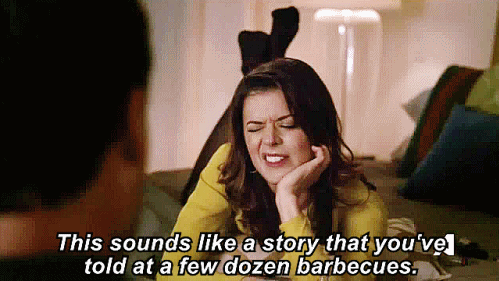
Originally written for the Dutch website Filmhoek

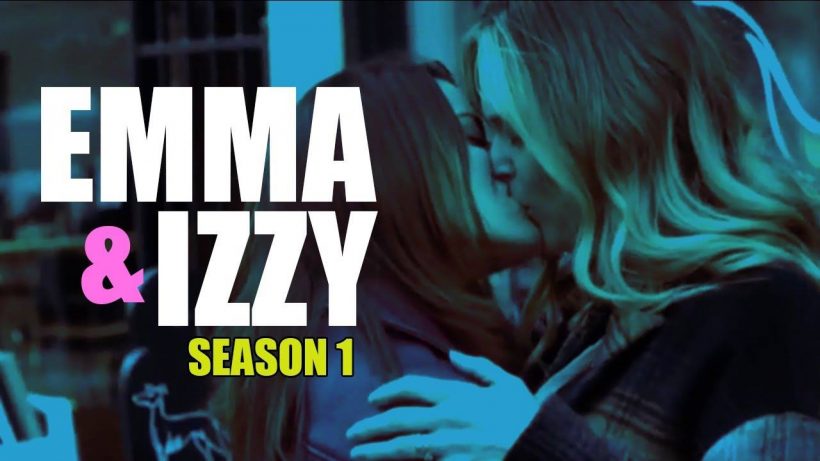
Leave a Reply